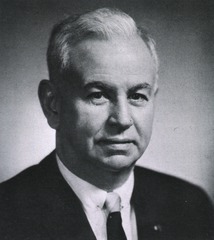
Mark L. Ruffalo
@MarkLRuffalo
Editor-in-Chief, @CarlatPsych Psychotherapy Report; Pitt-trained 💙💛 faculty in psychiatry @UCF and @TuftsMedSchool; interest in BPD/psychosis
ID:1173300224737140737
http://drruffalo.com 15-09-2019 18:19:15
3,7K Tweets
16,0K Followers
1,4K Following









Another shot of 2012 Kentucky Derby Preakness Stakes Winner I'll Have Another enjoying his days in retirement.



New piece by Ronald Pies at Psychiatric Times on nonprescribing in psychiatry, touching also on overutilization and underutilization of some agents. Dr. Ghaemi Nassir Ghaemi is quoted on mood illness, and I am quoted on borderline disorders.
psychiatrictimes.com/view/the-fine-…


Allison Hauser Robin Carhart-Harris Nassir Ghaemi makes a convincing argument here that lithium is the only disease-modifying drug in psychiatry, and I believe that a compelling argument can be made that it is only psychotherapy that gets at the 'cause' of personality pathology.
pubmed.ncbi.nlm.nih.gov/35653111/

Tim Kaiser Max Wolff Robin Carhart-Harris When we get into discussion of 'root causes,' there are likely only two treatments in psychiatry that achieve that: lithium for bipolar mood disorder, and psychotherapy for personality disorder.




![Nicolas Badre (@BadreNicolas) on Twitter photo 2024-04-11 02:19:43 Spitzer described the psychoanalytically influenced DSM-II as - “reliability is no better than fair for schizophrenia and is poor for the [rest]” Picture of the inter-rater reliability of the DSM-II (the degree of consistency between two of the same thing) Spitzer described the psychoanalytically influenced DSM-II as - “reliability is no better than fair for schizophrenia and is poor for the [rest]” Picture of the inter-rater reliability of the DSM-II (the degree of consistency between two of the same thing)](https://pbs.twimg.com/media/GK2Wyf5aQAAZTG7.jpg)